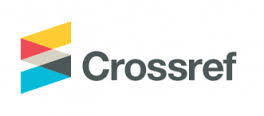قيادة المدرسة الذكية
DOI:
https://doi.org/10.59759/educational.v3i4.815الكلمات المفتاحية:
school leadership، smart school,، information and communication technology، Internet of Things.الملخص
مؤتمر التعلم والتعليم في عصر الرقمنة 2024 - بحث رقم 13
التنزيلات
المراجع
Attaran, M. & Saedah, S. & Norlidah, A. (2012). "Learning culture in a smart school: A case study. Working Paper at International Educational Technology Conference (IETC 2012)", Taoyuan, Taiwan
Burns, A. & Sullivan, S. & Wallace, J. & Proffitt, E. (2023). niversity Principal Preparation Initiative (UPPI): Positive Outcomes for Future School Leaders, Kentucky Journal of Excellence in College Teaching and Learning, Vol19, pp135-139.
Fullan, M. (2019). Nuance: Why some leaders succeed and others fail. Thousand Oaks, CA: Corwin.
Gorbunova, N. V., & Kalimullin, A. M. (2017). Simulation of the Process of Training the Future Primary School Teachers for Organizing Extracurricular Activities, Ilkogretim Online, 16(4).
Hargreaves, A. & Shirley, D. (2009). "The fourth way: The inspiring future for educational change", Thousand Oaks, Corwin Press, pp.163-168.
Javed, M. (Preparation) (2017). "SCHOOL LEADERSHIP", Allama Iqbal Open University, Islamabad.
Manns, K. (2016). "Educational Reform in Finland and Washington State, USA", International Dialogues on Education, Vol.3, No.2, pp.83-90.
Mogas, J. & Palau, R. & Fuentes, M. & Cebrián, G. (2022). Smart schools on the way: How school principals from Catalonia approach the future of education within the fourth industrial revolution, Learning Environments Research, Vol25, pp875-893.
Ng, P. T. (2016). "What is a good principal? Perspectives of aspiring principals in Singapore", Educ Res Policy Prac ,Issue(15), pp.100-103.
Northouse, Peter G. (2001) Leadership Theory and Practice, Second Edition. Thousand Oaks, CA: Sage Publications, Inc.
Ojogiwa, O. T. (2021). "The Crux of Strategic Leadership for a Transformed Public Sector Management in Nigeria", International Journal of Business and Management Studies, 13(1), 83-96.
OZGENEL, M. (2020). "The Role of Charismatic Leader in School Culture", Eurasian Journal of Educational Research, No.86, pp85-114.
Paniagua, A. & Istance, D. (2018). "Teachers as designers of learning environments: The importance of innovative pedagogies", OECD Publishing. https://doi.org/10.1787/9789264085374-en.
Seong, D. Ng Foo (2015). "Gateways to Leading Learning - Instructional Leadership Practices in Singapore", APCLC-HKPI Monograph Series,Number 4, pp.7-9.
Shal, T. (2016). "Schools without Technology? A Big Flat No", International Journal of Research in Humanities & Soc. Sciences, Vol4, Issue8, Nov.-Dec.
Smith, K (2021). "Educating teachers for the future school- the challenge of bridging between perceptions of quality teaching and policy decisions: reflections from Norway", EUROPEAN JOURNAL OF TEACHER EDUCATION 2021, VOL.44, NO.3, 383–398. https://doi.org/10.1080/02619768.2021.1901077.
Vaillant, D. (2015). "School leadership, trends in policies and practices, and improvement in the quality of education", UNESCO, Background paper prepared for the Education for All Global Monitoring Report 2015, Education for All 2000-2015: achievements and challenges.
Young, P. (2009). Instructional Design Frameworks and Intercultural Models. Information Science reference p


